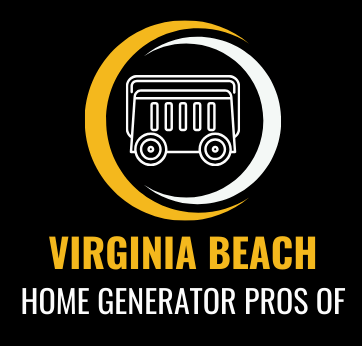
Standby Whole House Generator Company in Seatack VA
At our
standby whole house generator company in Seatack, VA, we understand the importance of having a reliable backup power solution for your home. Power outages can occur unexpectedly due to severe weather, grid failures, or other unforeseen events. Having a standby generator ensures that your home remains powered, protecting your family, comfort, and essential systems. Choosing the right generator involves considering various factors that will impact its performance and suitability for your specific needs. In this context, we will explore key aspects such as power output, fuel type, efficiency, and runtime to help you make an informed decision.
Power Output (Wattage)
When selecting a standby whole house generator, power output is one of the most critical factors to consider. The generator's wattage determines how much electricity it can produce, which directly impacts how much of your home it can power during an outage.
Understanding Peak Load vs. Continuous Load
Power output is typically measured in watts, and it’s essential to understand the difference between peak load and continuous load. Peak load refers to the maximum power that a generator can produce for short periods, such as when large appliances start up. Continuous load, on the other hand, represents the power the generator can provide consistently over time. To ensure your generator can handle your home's needs, calculate the total wattage required for essential appliances and systems, and make sure the generator can manage both the peak and continuous loads.

We will get back to you as soon as possible.
Please try again later.
Sizing the Generator
Choosing the right size generator is crucial. A generator that is too small won’t be able to power all of your necessary systems, while one that is too large can be inefficient and costly to operate. It’s important to assess your home's power needs carefully. Start by listing the appliances and systems you want to keep running during a power outage, such as HVAC, refrigerators, lights, and medical equipment. Once you have this list, calculate the total wattage needed and select a generator that can handle it. Proper sizing ensures that your generator operates efficiently and reliably during an outage.
Fuel Type
The fuel type of your standby generator significantly influences its performance, cost, and environmental impact. Understanding the various fuel options available will help you choose the best solution for your home.
Common Fuel Options
Diesel, propane, or natural gas are the usual fuel sources for standby generators. Every fuel type has benefits and drawbacks. Natural gas is convenient for homes with a gas line, as it offers an uninterrupted fuel supply and eliminates the need for storage tanks. Propane, on the other hand, is a clean-burning fuel that is easy to store, making it a popular choice for areas without natural gas access. Diesel is known for its energy efficiency and long runtime, making it ideal for high-power demands, but it requires proper storage and has higher emissions compared to the other options.
Fuel Availability and Cost
When choosing a fuel type, it’s essential to consider its availability and cost in your area. Natural gas is often the most cost-effective option for homes with existing gas lines, while propane might be more suitable for rural areas. Diesel is typically more expensive but can be a reliable choice for larger generators that need to run for extended periods. Additionally, you should factor in the cost of fuel storage and delivery if you opt for propane or diesel.
Environmental Considerations
Environmental impact is another important factor when choosing a fuel type. Natural gas and propane are generally cleaner-burning options, producing fewer emissions than diesel. If reducing your carbon footprint is a priority, you may want to lean toward propane or natural gas. Additionally, some generators are designed to be more environmentally friendly, with features that minimize emissions and fuel consumption. By considering the environmental impact of your fuel choice, you can make a more sustainable decision for your home and community.
Efficiency and Runtime
Efficiency and runtime are key considerations when selecting a standby whole house generator, as they determine how long and effectively your generator can keep your home powered during an outage.
Fuel Efficiency
Fuel efficiency refers to how effectively a generator converts fuel into electricity. A more fuel-efficient generator will use less fuel to produce the same amount of power, which can save you money in the long run and reduce the need for frequent refueling. When evaluating fuel efficiency, consider the generator's load capacity and how it performs under different conditions. Some generators are designed with advanced technology that optimizes fuel usage based on the load, ensuring that the generator operates as efficiently as possible, even when demand fluctuates.
Continuous Runtime
Continuous runtime is the length of time a generator can operate without needing to be refueled or serviced. This is particularly important during extended power outages, where you may need your generator to run for several days or even weeks. The runtime of a generator is influenced by factors such as fuel capacity, efficiency, and load. Generators with larger fuel tanks or those that are more fuel-efficient typically have longer runtimes. When choosing a generator, consider how long you may need it to run during an outage and select a model that can meet those demands without requiring frequent refueling or maintenance.
Safety Features
Safety is a top priority when selecting a standby whole house generator. Modern generators come equipped with various safety features that protect both the generator and your home from potential hazards.
Carbon Monoxide Detectors
Carbon monoxide (CO) is a colorless, odorless gas that can be deadly if it accumulates in enclosed spaces. Generators that burn fuel can produce CO, so it's essential to have safety features in place to prevent dangerous buildup. Many modern generators come with integrated carbon monoxide detectors that automatically shut down the generator if CO levels become unsafe. This feature is particularly important if your generator is located near living spaces or in areas where ventilation may be limited.
Overload Protection
Overloading a generator can cause damage to both the generator and your home's electrical systems. To prevent this, many generators are equipped with overload protection features that automatically shut down the generator if the load exceeds its capacity. This feature helps to protect your investment and ensures that your generator operates safely during an outage. It's also important to regularly test and maintain these safety features to ensure they function correctly when needed.
What We Offer
At our company, we provide comprehensive whole-house generator services in Seatack, VA. This includes:
- Residential Generators
- Commercial Generators
- Portable Generators
- Electric Generators
- Propane Generators
- Solar Generators
- Generator Repairs
- Generator Maintenance
- Generator Parts
Selecting the right standby whole house generator for your home requires careful consideration of several key factors. Understanding your home's power needs and the differences between peak and continuous loads will help you choose the appropriate generator size. Fuel type plays a significant role in performance, cost, and environmental impact, so it’s important to choose the option that best fits your situation. Additionally, evaluating the efficiency and runtime of a generator ensures that it can provide reliable power during extended outages without excessive fuel consumption. By considering these factors, you can make an informed decision that will provide peace of mind and ensure your home remains powered during any emergency.
Let's Connect!
When it comes to power outages, you never know when they will occur or how long they will last. This is why having a reliable generator is crucial to ensure your home stays up and running during times of uncertainty. And what better way to get a top-notch generator than through us? Our team of experts is dedicated to providing the highest quality service and products to ensure your home's safety and comfort. With years of experience under our belts, we are confident in our ability to meet and exceed your expectations. So, why wait? Hire us today for unparalleled generator installation and maintenance services.